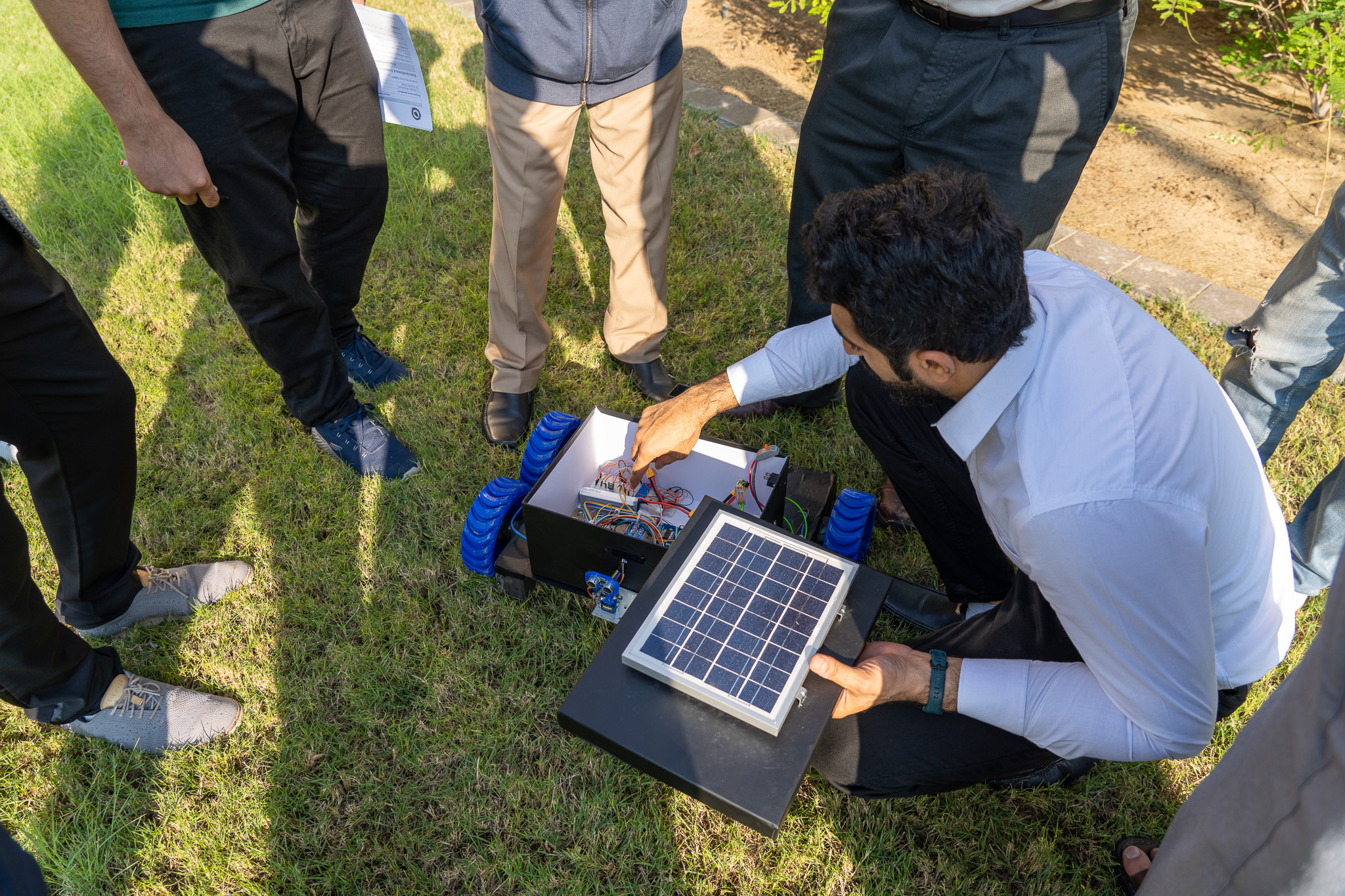
Dr. Muamar Hassan Abdel Rahim Salameh
Dean, Faculty Affairs
Dr. Ghida AlZohbi
Assistant professor
Mr. Farooqui Waseemuddin
Instructor
INTRODUCTION TO SUSTAINABILITY
About this Course
The course is divided into 9 modules covering the main aspects on sustainable development. One module opens per week followed by an assessment.
Learning Objectives
- 1. Develop understanding of the interconnectedness of human and natural systems.
- 2. Develop learning environment that provides student the ability to freely explore how sustainability ideas can supplement existing values.
- 3. Develop student’s scientific and social literacy, information management, interpersonal expression, environmental problem solving and critical thinking while providing skills for identifying and solving problems objectively.
Learning Outcomes
- 1. Define and understand the concept of sustainability.
- 2. Identify the key characteristics of human and natural systems as they pertain to sustainability.
- 3. Communicate how the key characteristics of human and natural systems interact with one another.
- 4. Identify measurable collective and individual actions.
- 5. Analyze sustainability from a multidisciplinary perspective and understand main doctrines of diversity.
Course Index
An introduction to the concept of sustainability (its roots, history of development and aspects) and the global Sustainable Development Goals (SDGs).
Quiz
Understanding the natural systems, and the biogeochemical cycles (oxygen cycle, carbon, nitrogen, phosphorus, and hydrologic)
Causes (natural and human activities), evidences of climate change and its negative impacts on life and on the aspects on sustainable development.
Types and causes of pollution and actions to reduce the pollution and the different technologies used for treatment of waste water and solid waste.
Sustainable food, agriculture, and their role in achieving water and food security and decreasing hunger and poverty.
Analysis of the problems caused by transportation and its impact on our life. The concept of sustainable transportation and its role in realizing sustainable and inclusive transportation Systems.
Types of renewable energy sources and their advantages on achieving the goals of sustainability. An overview of the existing technologies for energy storages.
Description of the elements of smart cities and green building standards and models.
Identification of the available tools for sustainability assessment which is the key element for advancing sustainable development


